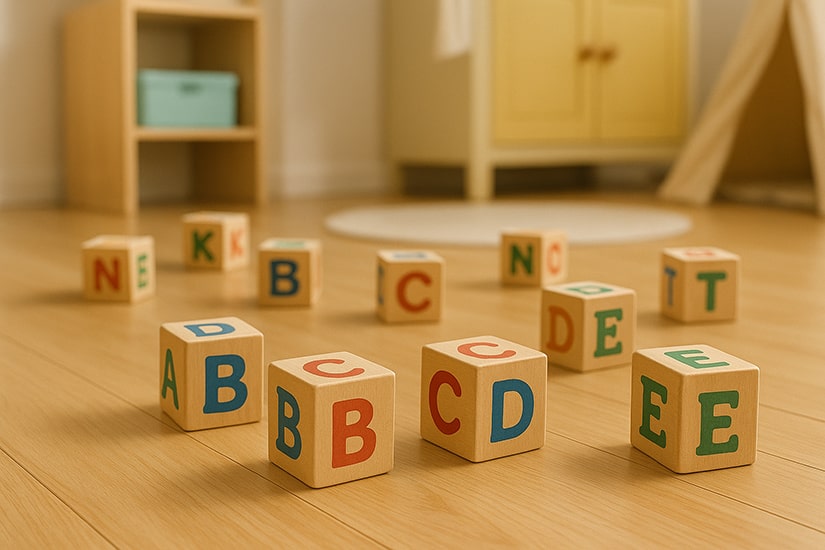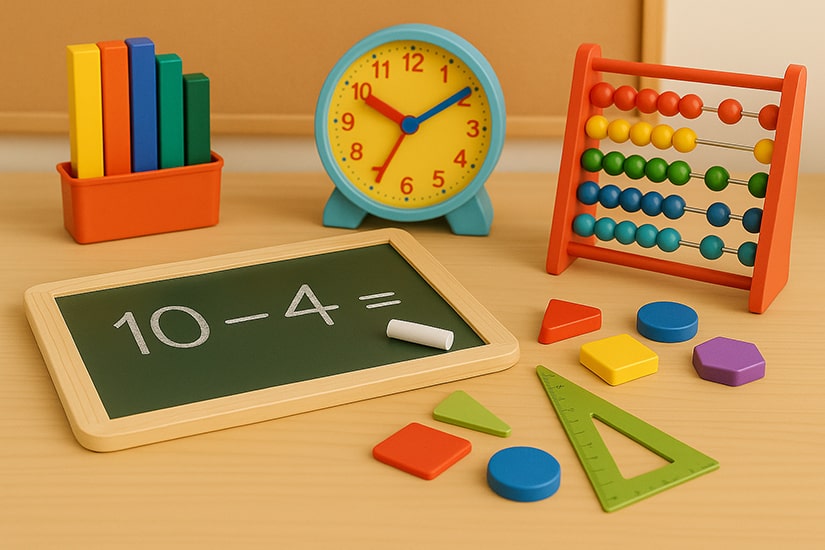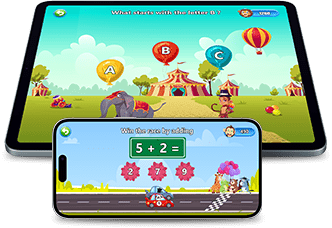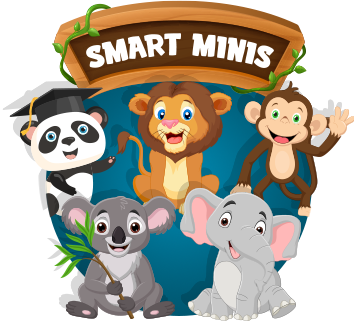Table of Contents
Early brain development
The first years of life are a time of incredible brain growth, and the things your child learns during these years shape how they think, how they feel, and how they will succeed later on.
Recent research confirms that learning in the early years builds a foundation that supports everything from reading to math to problem solving.
Significant potential for learning starts before pre-school
What many families do not realize is how much of a head start children get from early learning at home, before preschool begins.
The first years of life are a time of incredible brain growth, and the things your child learns during these years shape how they think, how they feel, and how they will succeed later on.
Recent research confirms that learning in the early years builds a foundation that supports everything from reading to math to problem solving.
“What surrounds us, shapes us. Beginning before birth, the conditions in a child’s developmental environment, which consists of the full range of exposures in the places where children live, grow, play, and learn, shape their developing brain and biological systems.”
Center of the Developing Child
Harvard University
Children also benefit from social and emotional skills that help them thrive in school and beyond. In fact, studies have shown that children who experience strong early learning are more likely to graduate from high school, attend college, and even enjoy better health as adults.
For parents, this means that the time you spend reading, talking, playing, and practicing skills with your little one is one of the most powerful investments you can make in their future.


Learning language: The building blocks of communication and confidence
Language learning begins the moment your child hears your voice. From the moment they are in your womb and can hear you talk and later as babbling babies, every word means something.
Children who grow up in language-rich environments, where people talk to them, read to them, and answer their questions, show a remarkable stronger vocabulary and communication skillset.
These skills help them not only when they start reading, but also when they later interact with friends, classmates, and teachers.

The size of a child’s vocabulary at school entry is one of the strongest predictors of later reading achievement. That means if your child knows a wide range of words, can describe what they see, and can tell short stories before kindergarten, they already have a huge advantage.
You as a parent play a central role here. Reading books aloud daily, singing songs, playing word games, and even narrating daily routines like cooking or grocery shopping all build your child’s understanding of language.
When you use this type of vocabulary in everyday life, such as comparing portions at the dinner table or counting toys during cleanup, you are giving your child the tools they will need for later problem solving.
Early math: a springboard to school success
Just as language is the foundation of reading, early math is the foundation of logical thinking. Researchers have discovered that children who show strong math skills when they enter kindergarten are more likely to succeed throughout their school years. In fact, early math skills often predict later academic achievement even more strongly than early reading skills.
So, what counts as early math? It does not mean memorizing multiplication tables. It means recognizing numbers, understanding that “three” means three of something, being able to add and subtract small amounts with real objects, and noticing patterns and shapes.
By age three, many children already understand the basic ideas of addition and subtraction when you use small numbers. For example, if you give them two crackers and then add one more, they can usually tell you how many they have.

Simple routines at home provide many opportunities for learning both math and language. Counting steps as you climb the stairs, sorting laundry by color, comparing the sizes of cups at the table, or asking your child to share snacks evenly between siblings all help them practice math thinking in fun and natural ways.
Early math builds more than number knowledge. It strengthens memory, attention, and reasoning. It teaches children how to look for patterns, solve problems, and stick with a challenge. These are skills that go far beyond math class and help children in every subject they will face later in school.


The role of technology: Learning through apps
For any parent it can be an overwhelming task in the many to-dos of laundry, meal planning, and bringing in a paycheck, to set time aside for supporting language and math learning at such a young age.
The good news is that parents today have a powerful tool that previous generations did not: educational apps.
Recent studies show that children using early childhood education often see early improvements in both math and literacy skills. That is where high-quality learning apps shine.
For example, math apps that let kids count, sort, or solve simple puzzles provide instant feedback and give children the chance to practice over and over without frustration.
Literacy apps can introduce letter sounds, sentences, and new vocabulary in a way that feels like play. The best apps combine fun with structured learning, keeping children engaged while reinforcing important skills.
While it is not a replacement for parent interaction, it is a powerful supplement that helps you as a parent to focus on your tasks, that in return gives you time for a cozy bedtime story, or fun game later.
And apps can fit in any short moments of the day, such as while waiting at the doctor’s office or during car rides, turning idle time into learning time.
Finding good educational Android or iOS apps, whether you own a phone or tablet, can be a seemingly daunting task. The app stores are full of apps teaching language, math, shapes, and colors, all in various quality and price tiers.
You should look for an app without ads, in a 100% child-proof environment, content-rich, and with fun mini-games that teach your child these important preschool skills.
We will write an article about the best educational Android and iOS apps for children in the future. Until then, you can try out Smart Minis own app that we feel offer all the qualities of a good educational apps targeted toddlers and preschoolers.
With a free trial, your child can start today on a fun learning journey.

The Smart Minis app makes learning fun
How parents can create an early learning environment for kids
Fortunately supporting early learning does not require expensive programs, or advanced teaching degrees. It simply requires time, attention, and intention.
When you weave learning into your child’s daily life, you make education part of who they become.
Talking is one of the easiest and most effective strategies. Ask your child questions, even if they are too young to answer. This builds vocabulary and shows them that their thoughts and ideas matter.
Reading together is another powerful tool. Children who are read to regularly develop stronger language skills, a love of stories, and a natural curiosity about words and ideas. This can also help make them become avid readers later in life.
Choose books with rich language and colorful pictures, and let your child ask questions or make predictions about the story. Point to where you are reading, so they can follow “karaoke” style. It teaches them spelling and pronunciation.
For math, encourage your child to count objects, notice shapes, and describe patterns. Play games that involve dice, blocks, or cards.
Show them how math is part of everyday life when you measure ingredients, pay for groceries, or compare prices.
Explore educational apps together. Look for apps recommended by teachers or organizations that focus on early childhood learning. Sit with your child as they play, asking questions and celebrating their successes.
This turns screen time into bonding time and ensures that technology is being used for growth, not just distraction.


Help your child become all they can be
As a parent, you are your child’s first teacher, and the lessons you share in the early years will echo throughout their life. Every bedtime story, every counting game, every playful conversation about colors or numbers is shaping their brain and building the foundation for school success.
Understandably, you have a busy life yourself and becoming a parent only adds to the daily tasks, so time is valuable.
Apps, when used wisely, add another layer of fun and interactive learning without taking time out of your day. With your support, early learning gives your child a powerful advantage when they walk into their first classroom.
And you are not just preparing your child for school. You are preparing them for life.






